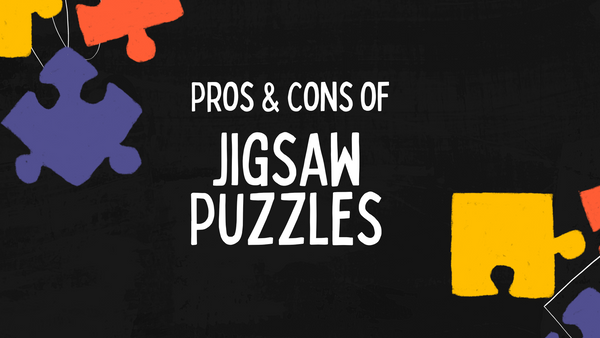
Jigsaw Puzzles: The Pros and Cons
Jigsaw puzzles have been a popular form of entertainment for centuries and are enjoyed by people of all ages. While they can provide hours of fun and relaxation, it is important to consider both the pros and cons of jigsaw puzzles before diving in. In this article, we will explore the benefits and drawbacks of jigsaw puzzles to help you determine if they are right for you.
Advantages of Jigsaw Puzzles
-
Relaxation: Jigsaw puzzles can be a great way to unwind and relax after a long day. The repetitive motion of putting the pieces together can be soothing and meditative, helping to reduce stress and promote a sense of calm.
-
Brain stimulation: Jigsaw puzzles require the use of several cognitive skills, such as visual perception, spatial awareness, and problem-solving. This can help to keep the brain active and engaged, promoting cognitive health and reducing the risk of age-related memory decline.
-
Social activity: Jigsaw puzzles can be a fun and enjoyable activity to do with others, providing an opportunity to socialize and bond with friends or family.
-
Portable: Jigsaw puzzles are compact and lightweight, making them easy to take on the go. Whether you are traveling, at the office, or just have a few spare minutes, jigsaw puzzles can provide an enjoyable and engaging activity.
Disadvantages of Jigsaw Puzzles
-
Durability: One of the biggest disadvantages of jigsaw puzzles is their durability. They can easily bend, tear, or fade due to exposure to light and moisture. The longevity of a jigsaw puzzle is also influenced by its usage and storage, as frequent handling and improper storage can lead to worn, brittle, or lost pieces. The lifespan of a jigsaw puzzle is, therefore, dependent on how often it is used and how well it is stored.
-
Limited utility: Another disadvantage of jigsaw puzzles is that they have limited utility. Once a puzzle has been completed, there is little practical use for it, and it may simply be stored away and forgotten. This is in contrast to other forms of entertainment, such as interactive 3D puzzles, which can be enjoyed multiple times and provide ongoing enjoyment.

-
Complexity: Jigsaw puzzles are often limited in their complexity due to the fact that they are two-dimensional. While this makes them easier to assemble, it also means that they may not be as challenging or visually engaging as other types of puzzles. In addition, the limited complexity of jigsaw puzzles may make them less appealing to individuals who are looking for a greater sense of accomplishment or a more challenging puzzle experience.
Jigsaw puzzles can be a fun and enjoyable form of entertainment that provide several benefits, including relaxation, brain stimulation, and social interaction. However, they also have several drawbacks, including limited durability, limited complexity, and space requirements. When choosing a jigsaw puzzle, it is important to consider both the pros and cons to determine if they are right for you.





